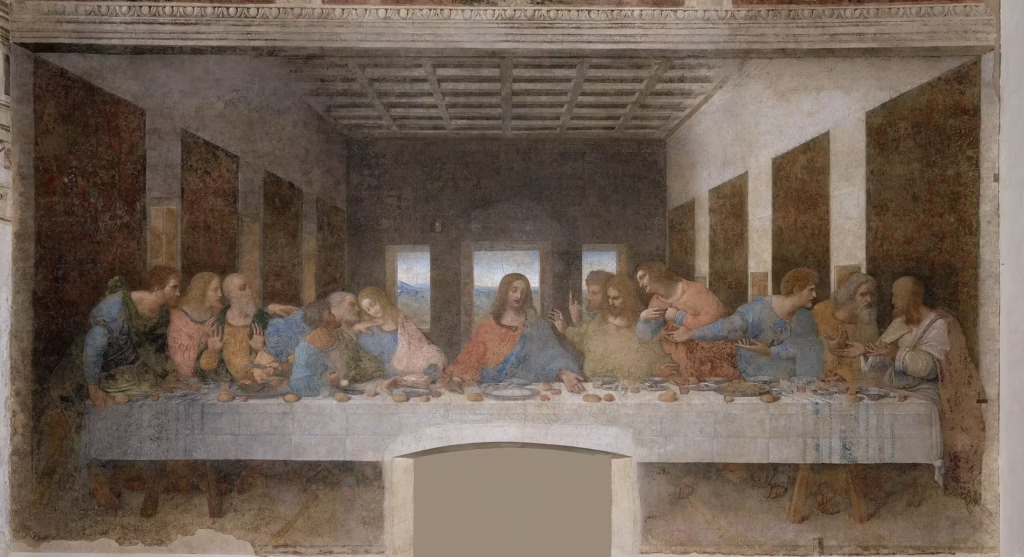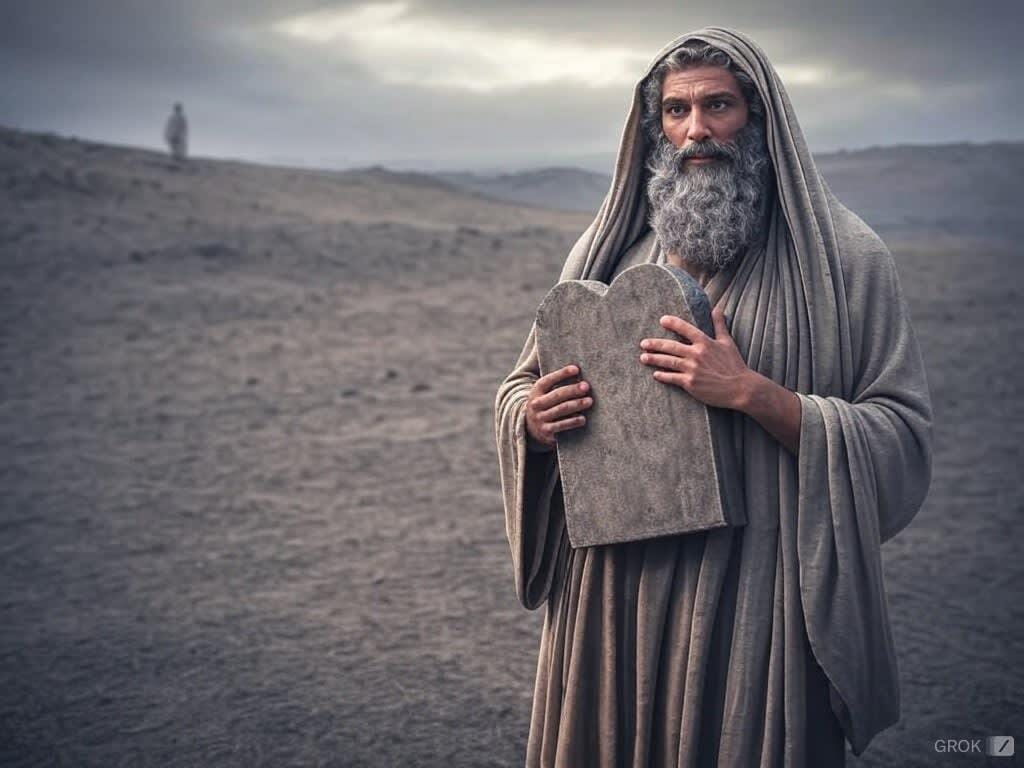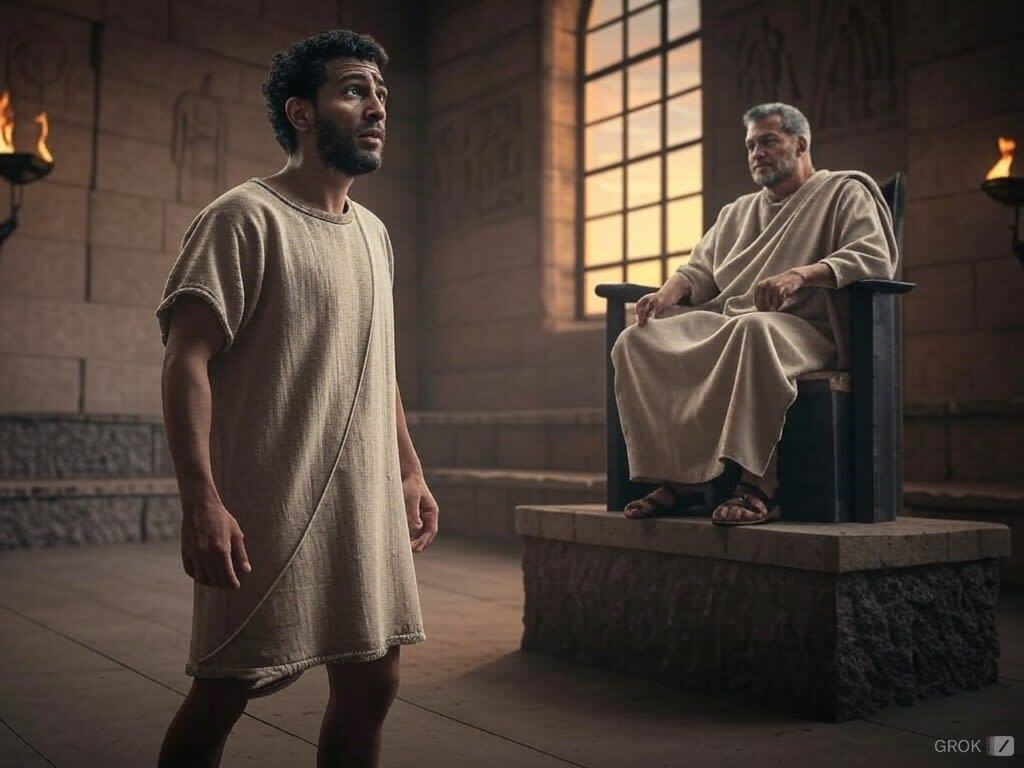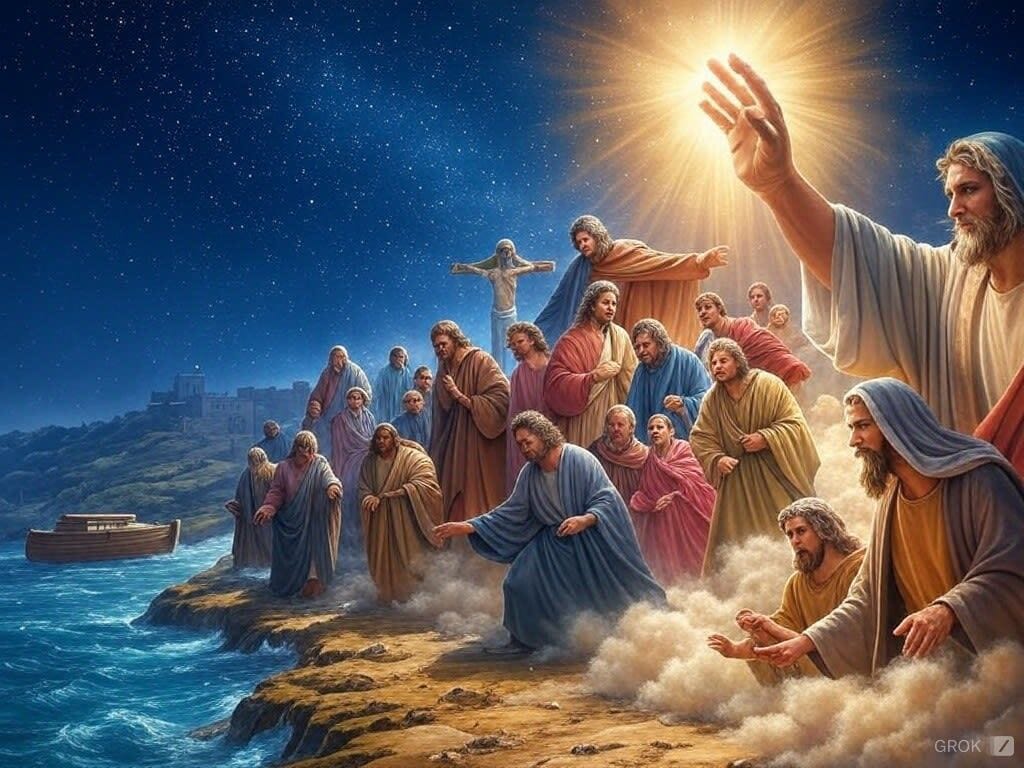Covenants in the Bible: Understanding God’s Unchanging Love for Humanity
The Bible is a treasure trove of stories, teachings, and divine revelations. At its core, biblical covenants represent sacred agreements between God and humanity. These divine pacts are the structural backbone of Scripture, shaping the relationship between the Creator and His creation. Spanning all of human history, these promises offer profound insight into God’s character and His consistent plan to redeem humanity. Understanding God’s covenants can deepen your appreciation of Scripture, transform your view of God, and reveal the seamless unity of the Old and New Testaments. Let’s dive in.
What Are Covenants in the Bible? The Berith and Diathēkē
A covenant is a binding agreement between two parties. In the context of the Bible, covenants are far more than mere contracts. They are God-initiated, sacred, and relational commitments that establish a formal bond between God and His people. Unlike modern legal contracts, biblical covenants are rooted in love, loyalty, and divine commitment.
The Hebrew word for covenant, berith (appearing 284 times in the Old Testament), emphasizes a solemn pact often ratified by a shared meal, sacrifice, or ritual. For a detailed scholarly analysis of the covenant concept, particularly how the berith was structured, one can delve into academic sources. The Greek word for covenant, diathēkē (appearing 33 times in the New Testament), often translated as “testament,” emphasizes the sovereign nature of the agreement—it is a one-sided decree or arrangement set forth by God, the superior party. For example, the seal for some covenants in the Bible is sacrifice or circumcision. These terms emphasize a solemn pact that is often sealed with a sign or ritual.
Biblical covenants involve promises, obligations, and blessings. They reveal God’s desire to partner with humanity in His redemptive plan despite human failure. Scholars categorize biblical covenants into two primary types:
- Conditional Covenants: These require human obedience as the terms of the agreement. The fulfillment of God’s promises is dependent upon man upholding his side of the covenant (e.g., the Mosaic Covenant).
- Unconditional Covenants: These guarantee fulfillment entirely by God, regardless of human failure or disobedience. God’s promise rests solely on His own character and oath (e.g., the Abrahamic and Davidic Covenants).
Throughout Scripture, God establishes these covenants in the Bible with individuals, nations, and even all humanity, providing a framework for understanding His historical actions and prophetic promises.
The Major Covenants in the Bible: God’s Progressive Plan
The Bible highlights several key covenants in the Bible that form the backbone of its narrative. Each covenant builds upon the previous one, progressively unveiling God’s purpose and deepening humanity’s understanding of His plan. Let’s examine the most significant covenants in the Bible.
1. The Noahic Covenant: A Promise of Preservation
Key Scripture: Genesis 9:8-17

Following the Great Flood, which wiped out humanity’s corruption while sparing Noah and his family, God made a solemn covenant. The Noahic Covenant is unique because it is a universal promise made with Noah, his descendants, and every living creature on earth. God swore that He would never again destroy the earth with a flood.
- Sign and Meaning: The rainbow became the enduring sign of this pledge (Genesis 9:13). Hence, it is a symbol of hope and God’s mercy. The covenant demonstrates God’s commitment to preserving the natural order and creation despite the persistent problem of human sinfulness. This commitment to preservation is a fundamental and often overlooked aspect of covenants in the Bible.
- Nature: This is an unconditional covenant, guaranteeing the stability of the natural world (seasons, day, and night) until the final consummation of the age.
2. The Abrahamic Covenant: A Nation and a Blessing
Key Scripture: Genesis 12:1-3, 15:1-21, 17:1-14
God’s covenant with Abraham is foundational to the entire biblical story, detailing the first step in God’s redemptive plan for all nations. In Genesis 12, God called Abram (later Abraham) to leave his homeland, promising three main things: land, descendants (a great nation), and a universal blessing.
- The Unconditional Core: In Genesis 15, God formalized the covenant through a ritual where only God passed between the sacrificial animals (symbolized by a smoking firepot and blazing torch). This demonstrated that God alone would guarantee the fulfillment of the core promise, regardless of human failure. This is why the Abrahamic Covenant is primarily unconditional.
- The Sign: Later, in Genesis 17, circumcision became the visible sign of this covenant, marking Abraham’s descendants as God’s chosen people.
- Fulfillment in Christ: The Abrahamic Covenant introduced the idea of a chosen nation (Israel). However, its ultimate goal was the “universal blessing”—the ultimate foreshadowing that all nations would be blessed by Jesus Christ (Galatians 3:16). Understanding this covenant in the Bible reveals God’s heart for the entire world.
3. The Mosaic Covenant: Law and Obedience
Key Scripture: Exodus 19-24
After God delivered the Israelites from slavery in Egypt, He established the Mosaic Covenant at Mount Sinai. Unlike the unconditional covenants with Noah and Abraham, this was distinctly a conditional covenant. God promised to make Israel a “kingdom of priests and a holy nation” (Exodus 19:6). In return, they promised to obey His laws, including the Ten Commandments.
- The Purpose of the Law: The Mosaic Covenant introduced the Law, which guided Israel’s worship, morality, and daily life. The terms were clear: the reward for their obedience was the enjoyment of life in the promised land of Canaan. If they failed to live up to their end of the covenant, God would remove them from the land, which eventually led to the exile.
- The Sign and Limitation: The sign of this covenant was the Sabbath (Exodus 31:13). This covenant served to highlight God’s holiness and, critically, humanity’s utter inability to perfectly keep the Law. It was intended to expose sin and point forward to the need for a Savior, demonstrating why a new covenant was necessary.
4. The Davidic Covenant: A King Forever
Key Scripture: 2 Samuel 7:8-16
God’s covenant in the Bible with King David promised an everlasting dynasty and kingdom. David desired to build a temple for God. God responded by promising to build a perpetual “house” (dynasty) for David. God pledged that David’s lineage would endure and reign forever. This covenant is firmly unconditional.
- Sovereignty and Lineage: God promised David that even when his descendants sinned, God would discipline them, but He would not remove the covenant relationship. This highlights God’s unwavering commitment to His sovereign plan. At one point God removed King Jeconiah from the conditional promise of retaining the kingship (Jeremiah 22:28–30), but God kept His promise by moving the kingship to a different, righteous line of David (Luke 3).
- Fulfillment in Christ: This covenant in the Bible found its ultimate and eternal fulfillment in Jesus Christ, the “Son of David” (Matthew 1:1), whose spiritual kingdom will never end. It is a pivotal link between the Old Testament promises and the Messiah’s arrival.
5. The New Covenant: Grace and Redemption
Key Scripture: Jeremiah 31:31-34, Luke 22:20, Hebrews 8:6-13

The New Covenant is the culmination of God’s covenantal relationship with humanity. It was foretold by the prophet Jeremiah and inaugurated by Jesus at the Last Supper. This covenant offers grace through faith and is sealed by the indwelling Holy Spirit.
- The Superiority of the New Covenant: The New Covenant is superior to the Mosaic Covenant because it replaces the Law written on stone tablets with the Law written on the heart (Jeremiah 31:33). It offers perfect forgiveness of sins and direct access to God, made possible by Christ’s sacrifice on the cross.
- Universal Scope: At the Last Supper, Jesus declared, “This cup is the new covenant in my blood” (Luke 22:20), establishing a new era of grace. This covenant is open to all, extending beyond Israel to anyone who believes in Christ (Hebrews 8:10-12). The New Covenant is the fulfillment of God’s ultimate plan and promise of redemption.
The Significance of Covenants in the Bible
Why do covenants in the Bible matter? They are the essential hermeneutical key to interpreting the entire Bible. They reveal God’s nature and His relentless pursuit of a redemptive relationship with humanity.
- God’s Faithfulness: Every covenant showcases God’s perfect trustworthiness. Even when humans fail (as Israel often did), God keeps His promises. This concept of God’s loyalty is central to understanding His character.
- Progressive Revelation: The covenants in the Bible unfold God’s step-by-step plan, moving from the preservation of creation (Noahic) to the eternal salvation of humanity (New Covenant). They demonstrate the orderly, sovereign nature of God’s work.
- Personal Application: The New Covenant offers a transformed life through faith in Christ. Those who accept Jesus as Lord and Savior receive forgiveness of sin and eternal life. It defines the relationship every Christian has with God today.
- Unity of Scripture: Covenants tie the Old and New Testaments together, revealing a consistent storyline of grace and God’s plan of redemption for mankind. Many people perceive the Bible as disconnected stories. Yet, understanding covenants in the Bible helps one to see the Bible is one connected narrative.
Covenants and Their Tangible Signs
Many covenants in the Bible came with tangible signs, reinforcing their reality for God’s people. These signs served as physical, accessible reminders of God’s eternal promises:
- Rainbow (Noahic): A sign of God’s mercy and commitment to creation’s preservation.
- Circumcision (Abrahamic): A mark of identity for God’s chosen people, symbolizing the covenant promise passed down through generations.
- Sabbath (Mosaic): A symbol of rest and dependence on God’s provision, a weekly reminder to trust God rather than human effort.
- Blood of Christ (New Covenant): Represented in communion (the Lord’s Supper), a reminder of Jesus’ sacrifice that sealed the eternal covenant of grace.
These signs bridged the divine and human, making God’s covenants in the Bible accessible and memorable.
Covenants, Kingship, and the Messianic Line
A deep study of covenants in the Bible reveals a consistent theme of kingship that culminates in Jesus Christ. The covenants are designed to progressively narrow the focus of the promised Redeemer:
- Noahic: Promise to all humanity (preservation).
- Abrahamic: Promise to one nation (blessing through Israel).
- Davidic: Promise to one royal lineage (an eternal king from David’s line).
The Davidic Covenant is critical because it highlights the concept of Messianic fulfillment. Scholars note that the Old Testament repeatedly shows the failure of every human king from David’s line. This failure was intentional, pointing to the need for a perfect, divine King who could fulfill the covenant perfectly. Jesus, as the Son of David (Matthew 1:1), is the one and only true King who upholds the covenant forever. This understanding is key to answering the question of who wrote the Bible and why the lineage is so meticulously recorded.

How Covenants Differ from Modern Contracts
In today’s world, contracts are often transactional. They focus on mutual benefits and are easily broken upon non-performance. But, covenants in the Bible are relational, rooted in love, and upheld by God.
- Contracts: Focus on legal terms, timely resolution, and penalties for breach. They are based on the worthiness of the parties involved.
- Covenants: Emphasize trust, loyalty (hesed in Hebrew), and eternal commitment. They are based on the worthiness of the Giver—God’s unchanging character.
Thus, believers can approach their faith as a covenantal relationship. God is not looking to condemn people who fail to obey a checklist of rules. He loves us and wants us to obey because we love Him. The New Covenant is superior precisely because it removes the burden of fulfilling a contract and establishes a relationship of grace and forgiveness.
Covenants in the Bible: Lessons for Today
The covenants in the Bible are not ancient history—they offer timeless lessons that guide the Christian life today:
- Trust in God’s Promises: Like Abraham, we’re called to step out in faith, trusting God’s unseen plans. The New Covenant assures us that the greatest promise—salvation—is already fulfilled.
- Obedience Matters (Post-Salvation): The moral principles of the Mosaic Law, summarized by Christ, remind us that God desires a holy people who reflect His character. While we are no longer under the ceremonial law, obedience is a grateful response to grace, not a requirement for salvation.
- Hope in Christ: The New Covenant assures us that salvation is available to all, regardless of past failures. We live under a covenant of grace, sealed by the Holy Spirit.
- Community and Relationship: Covenants teach us that God desires intimacy and community. We are called to live in covenantal relationship with one another within the body of Christ.
For Christians, living under the New Covenant means embracing grace, pursuing holiness, and sharing God’s love with others.
Common Questions About Covenants in the Bible
Are All Biblical Covenants Still Active?
Yes, in a sense. The Noahic Covenant remains in effect (the whole earth will never flood again). The New Covenant fulfills and eternalizes the promises of the Abrahamic and Davidic covenants. Christ fulfilled the Mosaic Covenant’s ceremonial laws (sacrifices, temple rituals), but its moral principles endure as a guide for Christian living.
How Do Covenants Point to Jesus?
All these covenants in the Bible anticipate the Messiah. The Abrahamic Covenant promised a blessing to all nations through his Seed (Christ). The Davidic Covenant promised an eternal King (Christ). The New Covenant promised atonement and eternal life through His sacrifice (Christ). He is the central figure who validates and fulfills every promise.
Why Study Biblical Covenants?
Studying covenants in the Bible deepens our understanding of God’s Word. It also strengthens our faith and reveals the beauty of His redemptive plan. They are the scaffolding that holds the entire biblical narrative together.
Conclusion: The Enduring Power of God’s Covenants
Covenants in the Bible are more than theological concepts. They are the heartbeat of God’s relationship with humanity. From Noah’s rainbow to Christ’s cross, these divine agreements showcase God’s love, justice, and grace. They remind us that we serve a promise-keeping God who invites us into His eternal story.
The covenants in the Bible offer a roadmap to understanding God’s eternal plan. This is the key to interpreting all Scripture. As you reflect on these sacred promises, may you find hope in the God who never fails and a greater understanding of how His loyal love defines our lives.



